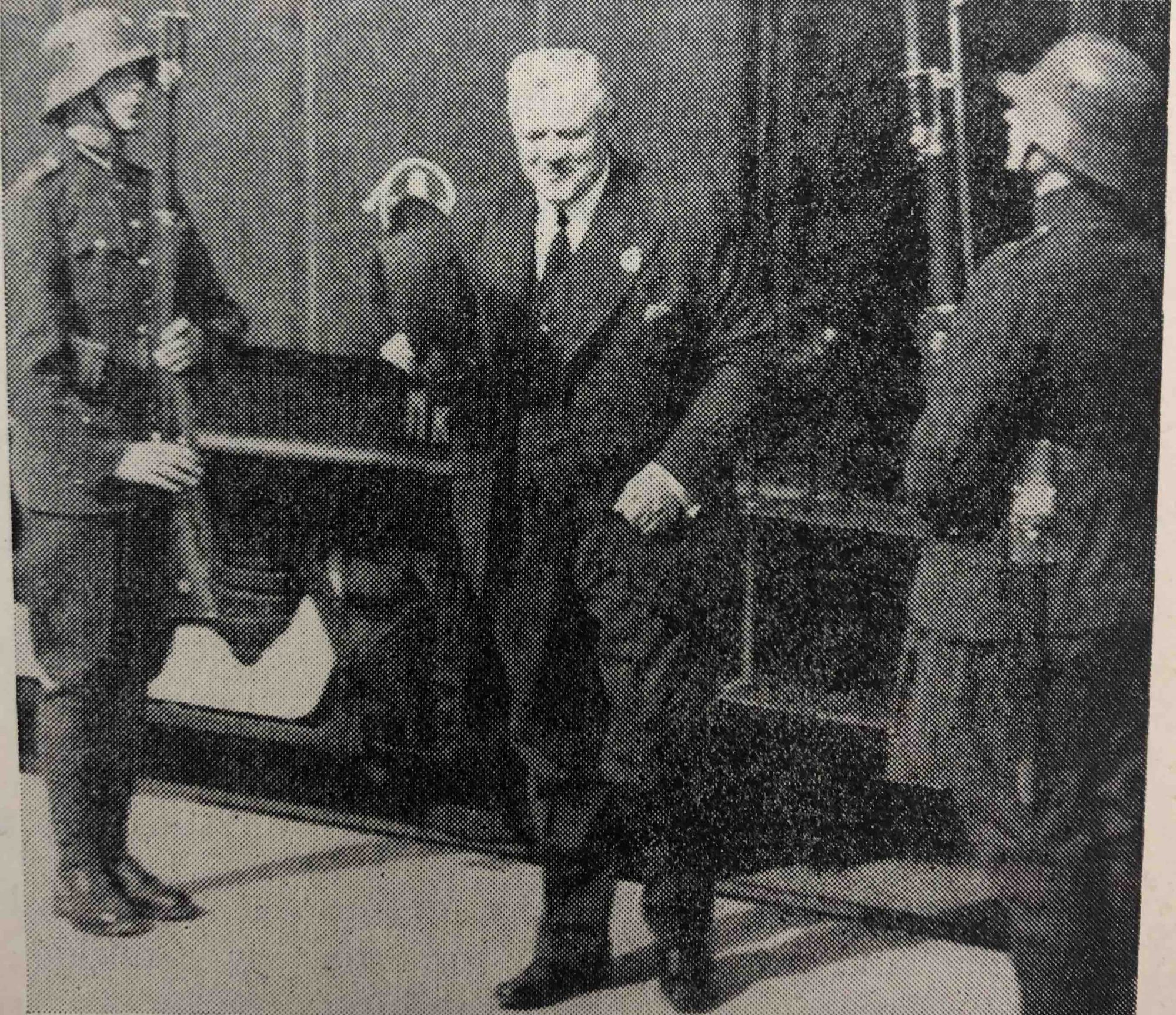Dr. Walter O. Lewis, general secretary of the Baptist World Alliance, after he had visited the D.P. [displaced persons] camps all over Germany, wrote about the Baptists from Eastern Europe in those camps, and expressed his amazement at their determination not to return to their native lands now under Communist control. …
I speak for the largest Baptist group of D.P.’s, the Latvians. The exact number is unknown because they are scattered in camps all over Western Germany, in Denmark, Belgium, Austria, France, Italy, and Sweden. A conservative estimate is 4,000, or about 30 percent of the entire Latvian Baptist family. …

Why are they displaced persons today? What is the basis of their determination to die rather than to return to their native land which they love more than anything else in this world?
There is reason: Soviet Russia’s attitude toward religion. When … Soviet Russia occupied and annexed Latvia in 1900, a regime of unbelievable terror began.
Churches were confiscated with everything in them and transformed into dance halls, movie houses, Red army clubs, and the like. Sunday schools were closed and an intensive godless propaganda promoted, especially among the children. Young people’s and other church organizations were forbidden. The few churches that were left open had to be rented from the Government, and the rental usually was so high that the congregations could not meet the price. The Baptist seminary was closed, the Baptist paper Kristiga Balss suspended.
Ministers were questioned and in many cases tortured by NKVD, the secret police. Several were deported to die in Siberia. Imprisonments, executions, deportations, and indescribable atrocities took place. In one year’s time 35,000 Latvian men, women and children were snatched from their homes and deported to slave labor camps in Siberia. … The Latvian Baptists’ hope that communism had changed its attitude toward religion and had become human bitterly deceived them. It is worse and more ruthless today than it has ever been before.
No wonder that, when the red army again approached Latvia’s borders, these people flew panic-stricken, westward. …
But now comes the question: Where can they go? …
One of the first countries that expressed willingness to receive war refugees was Brazil. The Brazilian Government has always had a great regard for the Latvian immigrants because of their ability to adjust themselves to the conditions in a new homeland. …
In 1922-23 an unusual movement arose among the Latvian Baptists to migrate to Brazil. It came as a result of a great revival that swept across that country after the first World War. It was a real Pentecost. People were saved by the thousands, and indifferent church members became fervent Christians. … About 2,000 of those Baptists felt in their hearts God’s call, like Abraham, to leave their homeland and go to a strange land. … In the midst of the jungles of Sao Paulo, about 500 miles in the interior, they established their colony. … They cleaned the jungles, built their homes, and started a mission work which has grown to such proportions that it has won the admiration of all the Brazilian Baptists. …
Latvians in Brazil, most of whom are Baptists and are organized in colonies and churches, have approached the Government officials and immigration authorities on behalf of the Latvian D.P.’s. The Government has agreed to let the D.P.’s go to established colonies, or start new ones, as they wish.
Excerpted from “Latvian Baptist D.P.’s Seek a Home” by Carlos Purgailis, The Commission, February 1947, p. 6-7.

